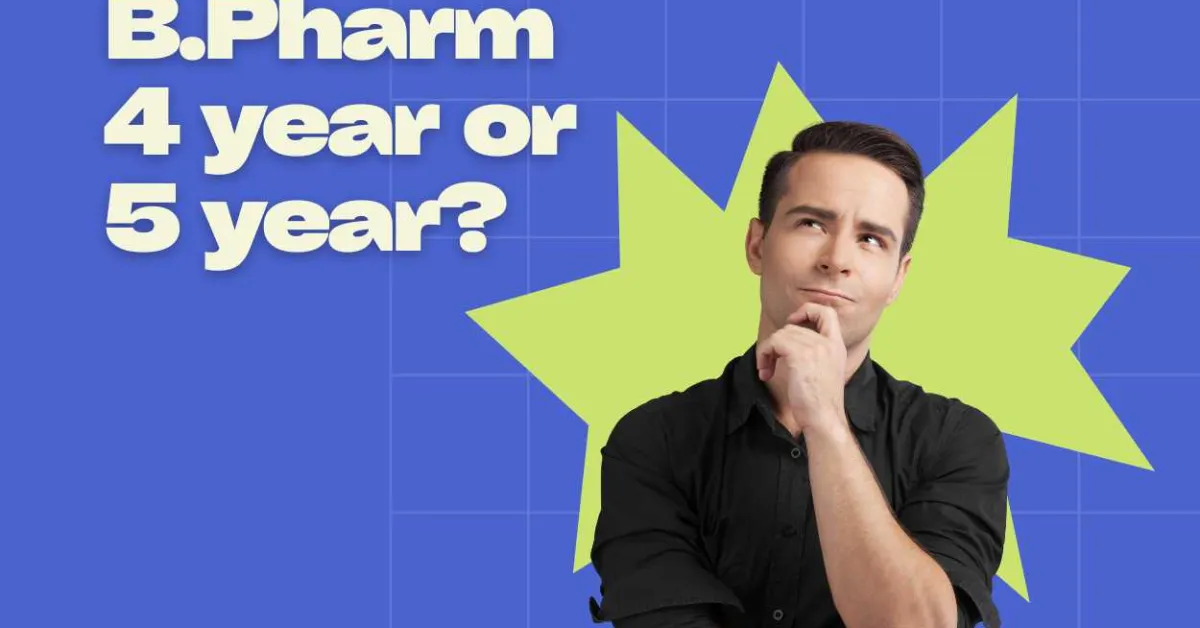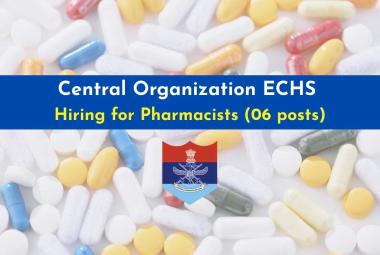In recent days, there has been growing discussion and a few articles advocating for the extension of the Bachelor of Pharmacy (B.Pharm) program in India from four years to five years. These calls are often based on the intent to strengthen the academic depth of the course, enhance clinical exposure, and align Indian pharmacy education with global standards. However, this proposal has sparked a mixed response within the academic and professional community. While educational reform is welcome, many question whether merely increasing the duration without a corresponding upgrade in curriculum, infrastructure, and career pathways would bring real value.
A Bachelor of Pharmacy (B.Pharm) degree not only opens doors to roles in drug research, production, quality control, and regulatory affairs, but also enables graduates to work in hospitals, clinics, and community pharmacies, contributing meaningfully to patient care. Moreover, the expanding pharmaceutical industry in India and globally ensures ample career opportunities, making pharmacy a stable and rewarding profession.
If the Bachelor of Pharmacy (B.Pharm) course in India were to be extended from four years to five years, it would bring both positive and negative impacts.
On the positive side, a five-year B.Pharm program could allow for a more in-depth curriculum, including additional clinical training, research exposure, and practical skills. This extended period could better prepare graduates for the evolving demands of the healthcare and pharmaceutical industries, aligning more closely with global standards in countries where pharmacy education spans five to six years. It may also improve the professional standing of pharmacists in India, potentially enabling them to take on more advanced roles in patient care, drug therapy management, and clinical settings.
However, the negative impacts of such a change would also be significant. Extending the course duration means an additional year of academic and financial burden for students, which could discourage many from pursuing pharmacy, especially those from economically weaker backgrounds. It might also delay entry into the workforce, impacting students' early career progression and income generation. Furthermore, unless the curriculum is meaningfully enhanced, simply adding a year may not translate into better job prospects or industry recognition. Therefore, any decision to extend the B.Pharm program should be carefully evaluated with clear objectives, stakeholder input, and a focus on actual skill development to ensure it benefits students and the healthcare system as a whole.
Competition with other biological science courses
In India, pharmacy has increasingly emerged as a significant alternative for many students aspiring to enter the medical field but unable to secure a seat through competitive exams like NEET. With the growing demand for healthcare services and pharmaceuticals, pharmacy education offers a viable and respected career path. Many students who are passionate about healthcare but face the intense competition and limited seats in MBBS programs are now turning to pharmacy as a practical and fulfilling option.
If the duration of the B.Pharm course in India were to become longer—especially in comparison to other biological science programs such as BHMS (Bachelor of Homeopathic Medicine and Surgery), BAMS (Bachelor of Ayurvedic Medicine and Surgery), and B.Sc. Nursing—it could lead to a shift in student preferences and have mixed consequences for the pharmacy field. Many of these alternative courses are either of equal or shorter duration (4.5 to 5 years including internship) and lead directly to a title of "doctor" or professional status with a clear patient-facing role. In contrast, pharmacy, though vital to healthcare, is often perceived as more of a supporting or industrial role rather than a clinical one—especially in India, where the clinical pharmacist role is still evolving.
This disparity may cause students to opt for courses that offer quicker returns, more social recognition, or clearer career paths in patient care. If pharmacy becomes a longer and more academically intense program without proportionate career rewards or respect, it might struggle to attract top talent. On the other hand, if the pharmacy curriculum is updated meaningfully—offering clinical exposure, research opportunities, and strong career pathways—then the longer duration could be justified and even make pharmacy a more attractive and respected choice.
In essence, while extending the B.Pharm course could improve quality and align with global standards, it must be backed by clear career advantages. Without that, the profession may risk losing students to alternative biological fields that offer shorter courses, clinical titles, and greater public recognition.
What will be the role of PharmD?
If the Bachelor of Pharmacy (B.Pharm) program in India is expanded to five years, it could blur the lines between the traditional B.Pharm and the Pharm.D programs, leading to questions about the distinct value and necessity of Pharm.D. Currently, Pharm.D is a six-year course (five academic years + one year of internship) that focuses heavily on clinical pharmacy, patient care, hospital training, and direct interaction with healthcare teams. Its main objective is to prepare pharmacists for clinical roles similar to those in developed countries, particularly the U.S. However, if B.Pharm is extended and incorporates more clinical training, internships, and patient-focused modules, it might begin to serve a similar purpose—thereby overlapping with Pharm.D in terms of content and goals.
In such a scenario, Pharm.D may either need to be restructured to offer even more advanced clinical exposure and specialization, or risk becoming redundant in the eyes of students and employers. It may also trigger a debate on whether India needs two similarly long pharmacy courses or whether one integrated program can serve both industrial and clinical career paths. On the other hand, if the expanded B.Pharm remains largely industry-focused and does not provide deep clinical training, then Pharm.D will continue to hold its place as the only course designed to produce clinical pharmacists. Ultimately, any such policy shift should be guided by a clear distinction between the two programs' objectives, ensuring that students are not confused and that the healthcare system benefits from both clinical and industrial pharmacy expertise.
Will the salary of candidates increase?
Extending the Bachelor of Pharmacy (B.Pharm) program from four to five years in India does not automatically ensure an increase in salary for graduates. While the longer duration might aim to enhance academic quality, clinical exposure, or align with international standards, salary growth depends on several other critical factors. For any real financial benefit to occur, the additional year must add substantial value through improved curriculum, practical training, or specialized skills that make graduates more competitive in the job market. If employers in the pharmaceutical industry, hospitals, or research organizations recognize this added value, they may offer better salaries. However, if the job market remains saturated or employers do not perceive a significant difference between four- and five-year graduates, salary levels may remain largely unchanged.
Furthermore, comparisons with other professional courses become important. If B.Pharm becomes a five-year program while salaries stay low—especially in comparison to shorter courses like nursing or paramedical sciences—it could deter students from choosing pharmacy as a career. For a positive salary impact, there must also be support from government and regulatory bodies in the form of better recognition of the pharmacist’s role, creation of new job opportunities, and possibly even minimum pay standards. In summary, an extended B.Pharm course could lead to higher salaries, but only if accompanied by meaningful educational reforms, industry recognition, and policy support. Otherwise, it risks placing a greater burden on students without delivering proportional career benefits.
Is Industry demanding a five years of Pharmacy course?
At present, the pharmaceutical industry in India is largely satisfied with the current four-year B.Pharm curriculum, especially for roles in manufacturing, quality control, regulatory affairs, sales, and marketing. These sectors typically value hands-on skills, technical knowledge, and job readiness over the number of academic years spent. From the industry's perspective, the focus is more on the practical skills and competency of graduates rather than the length of the course. Unless the fifth year brings a clear advantage in terms of advanced training, research capabilities, or clinical expertise, the industry does not see a compelling need to extend the duration. In fact, many employers may prefer hiring graduates sooner to reduce training costs and fill vacancies more quickly.
Moreover, with the current employment challenges and salary concerns already being faced by pharmacy graduates, extending the program could be seen as adding to the burden rather than solving existing problems. For the industry to support a five-year B.Pharm course, there would need to be clear evidence that such a change leads to significantly more competent, innovative, and job-ready professionals. Until then, the demand for such a reform remains limited to educational policymakers, not the pharmaceutical industry at large.
In conclusion, while the idea of extending the Bachelor of Pharmacy (B.Pharm) program in India from four to five years aims to enhance educational quality and align with international standards, its practical implications are complex. There is currently no significant demand from the pharmaceutical industry for this change, as employers prioritize skills and job readiness over the duration of academic study. If the fifth year fails to deliver substantial clinical or research training, it may only increase the academic and financial burden on students without improving their career prospects or salaries. Moreover, with alternative biological science courses like BHMS, BAMS, and Nursing offering shorter paths to respected clinical roles, a longer B.Pharm program could become less attractive unless it offers clear advantages. Additionally, such a change may lead to confusion regarding the distinct purpose of the Pharm.D course, potentially overlapping roles and diluting professional clarity. Therefore, any move to extend the B.Pharm program must be carefully planned, with a focus on actual skill development, better employment outcomes, and coordinated reforms across pharmacy education to ensure it truly benefits students and the healthcare system.
- Rajesh Vagh
PharmaTutor Edu Labs









